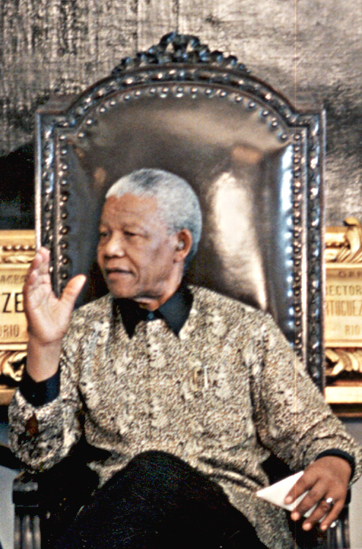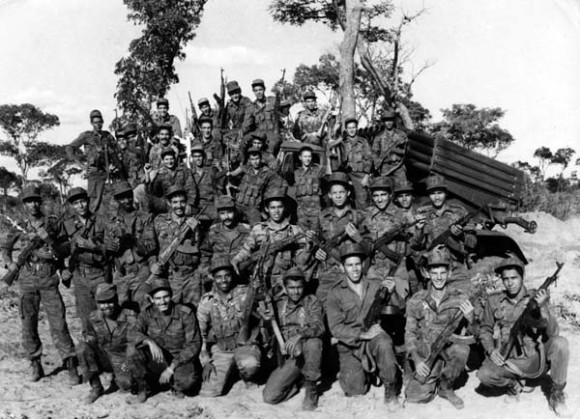As the cases of Ireland, Algeria, Palestine, and South Africa will suggest, settler colonies vary widely in history and circumstance, but the problems of decolonization in such formations are invariably obdurate. In Ireland, neither the moderate parliamentary Home Rule Party, which led the campaign for devolved independence within the British Empire before World War I, nor the republican separatists, who led the guerrilla war for Irish independence after Easter 1916, had any strategy adequate to deal with the resistance of the Ulster unionists, descendants of the original sixteenth- and seventeenth-century plantation settlers, to a united Ireland. Thus, nationalists would prove more or less helpless to respond when the British government established the partitioned state of Northern Ireland in 1921. The grievances of the Irish nationalist minority within that new polity were thereafter allowed to fester untreated for half a century until, in the late 1960s, “Ulster” erupted in a war that would lacerate it for nearly thirty years.
In Palestine, the Palestinian national movement, faced by an inflow of Jewish settlers from Europe demanding their own state, was ultimately confounded by this challenge. A US-imposed UN General Assembly Resolution of 1947 set the terms for a grossly unequal partition of Palestine into Jewish and Arab states; in the war that followed, somewhere between 700,000 and 1 million Palestinians were dispossessed as the new State of Israel was formed. This Palestinian exodus into the Arab states bordering Israel created nearly intractable problems for all the parties involved and has made the consequent Palestinian plight one of the scandals of Israeli history and of the American world order. After the National Liberation Front (FLN), under Ahmed Ben Bella, came to power in Algeria in 1962, it is estimated that over 800,000 settlers of European origin fled Algeria for France, some 200,000 other pieds noirs also leaving over the next decade. Pariahs of a disgraced French imperialism, the plight of the pieds noirs elicited little sympathy anywhere, but their fate served as a warning to any minorities that might resist the creation of an Arabized Algeria.
Of the situations cited above, only Mandela and the ANC managed to wrest a new state from the clutches of a dying colonialism without either expelling the settler population or conceding to ethno-territorial partitions. The enormity of that achievement, torn from a situation in which the circumstances of much of the black African population were infinitely worse than that of nationalists in Northern Ireland, and at least as bad as those of Palestinians in Gaza, must be wholly acknowledged. Mandela’s charisma and humane vision for a multiracial South Africa may have been significant to this success, but the conditions that enabled that outcome were historical, not personal. Unlike the Northern Irish unionists or the Zionists in Palestine, neither the white South Africans nor the Inkatha movement had any external great imperial power to hand to act as guarantor for any contemplated partitioned state. The implosion of the Soviet Union after 1989 incentivized all parties in South Africa to negotiation and reduced the risk that any secessionist state would find a Cold War–style backer. Likewise, the fact that the ANC was able to achieve its aims by largely nonviolent protest and pressure owes less to Mandela’s restraint than it does to the fact that despite the infamous “colour bars,” black labor had always remained crucial to the South African settler economy. As Mouna Younis has argued in Liberation and Democratization: The South African and Palestinian National Movements (2000), black proletarianization in apartheid South Africa created modes of organization more effective than older “traditional” ethnic formations and allowed black workers some scope for economic leverage and political pressure. The contrast with Palestine, where the Zionist movement’s commitment to a “Jewish labor only” policy succeeded in eliminating Palestinians almost wholly from the developing settler economy, is instructive. The Palestinians who remained within Israel after 1948 were reduced to a minority, while those in the West Bank and Gaza or beyond have always lacked any real capacity to exercise economic leverage on Israel. Thus, the Palestinians were never positioned to look to a democratization-from-below of the oppressor state to solve their problems in the way black South Africans could do, and while some might have proposed a binational state, they were in no position to advance it without an unforthcoming Israeli assent.
Finally, while Mandela’s and the ANC’s capacity to articulate the vision for an ethnically plural South Africa must be saluted, the bargain necessary to secure the consent of the white settler community clearly had its Faustian dimension. Territorial fissure and civil war were successfully averted, but the social compact that eased the ANC’s transition to hegemony preserved so much of the country’s wealth in the hands of the white elite that the social fissures between rich and poor may well prove a disaster in historical storage. Many Americans now revere Mandela as a kind of sunnier-tempered Abraham Lincoln, a national savior who preserved the South African union as Lincoln did the American. The tragedy of the post-Civil War United States and of South Africa today is that history seemed to decree to statesmen in both cases that any determined attempt to advance equality between the black and white populations and to secure a well-integrated state were incompatible goals. Thus, in the postbellum United States, saving the union dictated that the reconciliation of the Northern and Southern elites took precedence over redress of the plight of the black poor, who had to wait. In South Africa, today, the white and black elites have also agreed to share power, and the black poor are again compelled to wait. As the cases of Northern Ireland, Israel-Palestine, Algeria, and the United States all in their distinct ways demonstrate, the waiting of those excluded from history’s grand bargains may last a long time but rarely lasts forever.
-Joe Cleary


